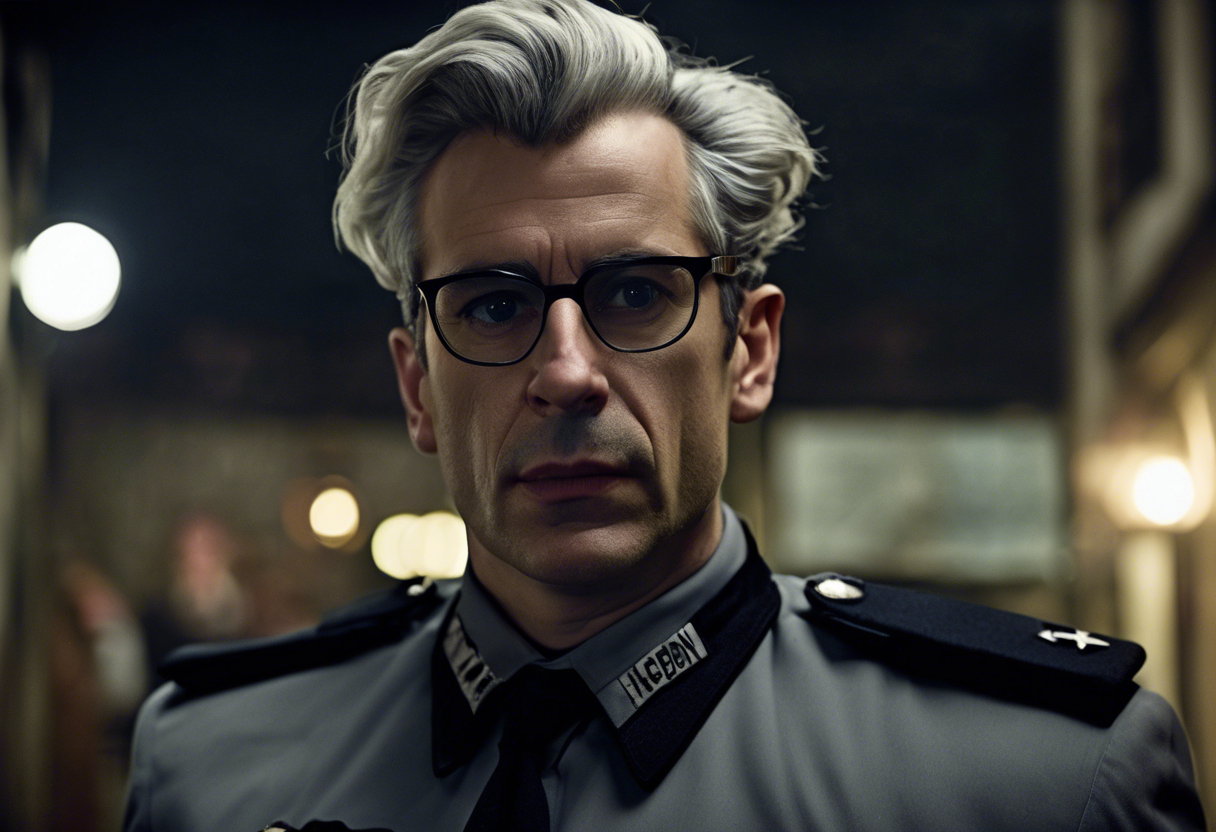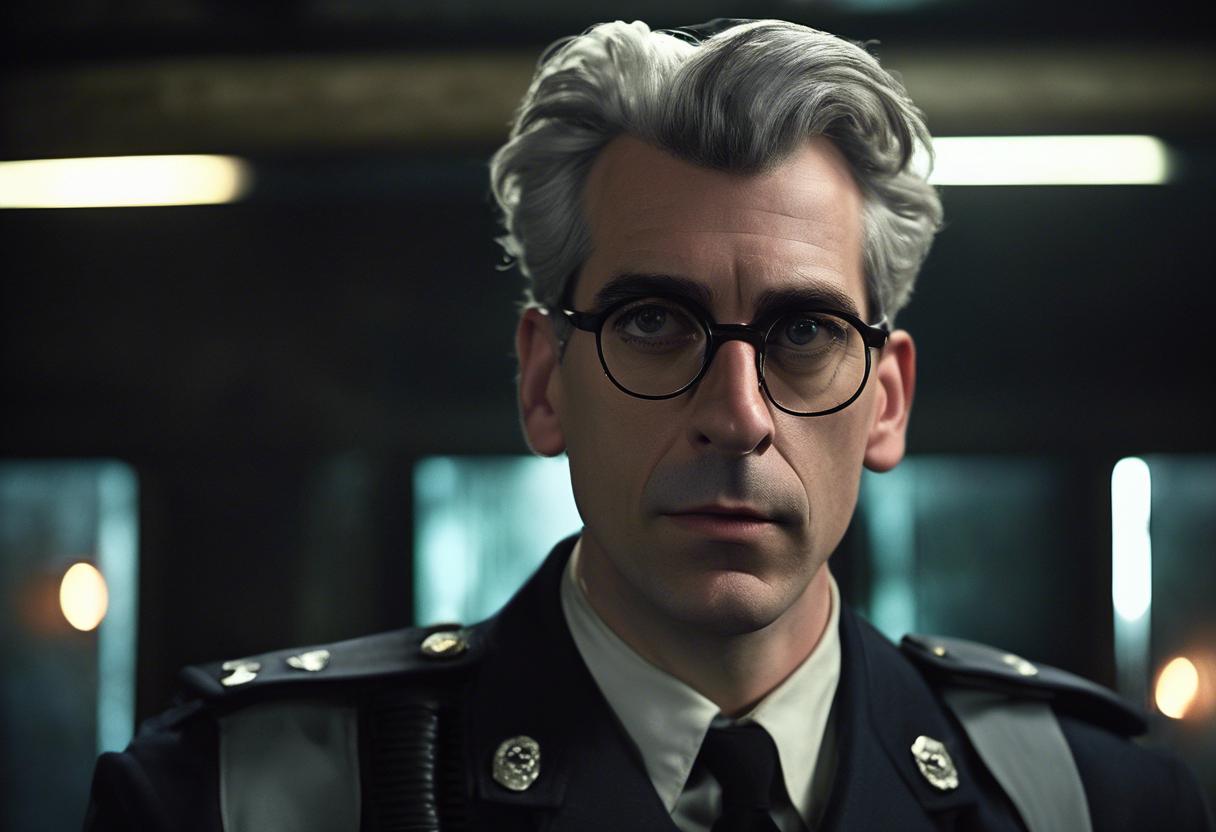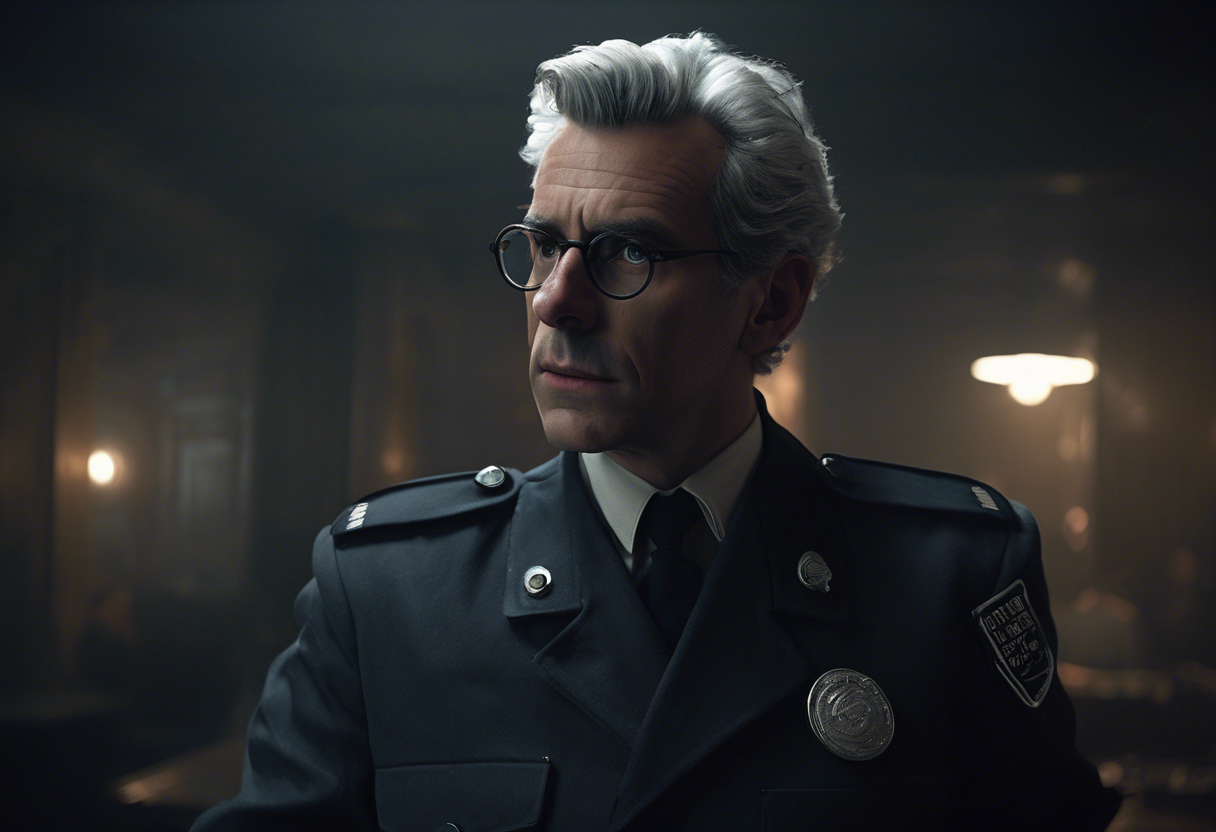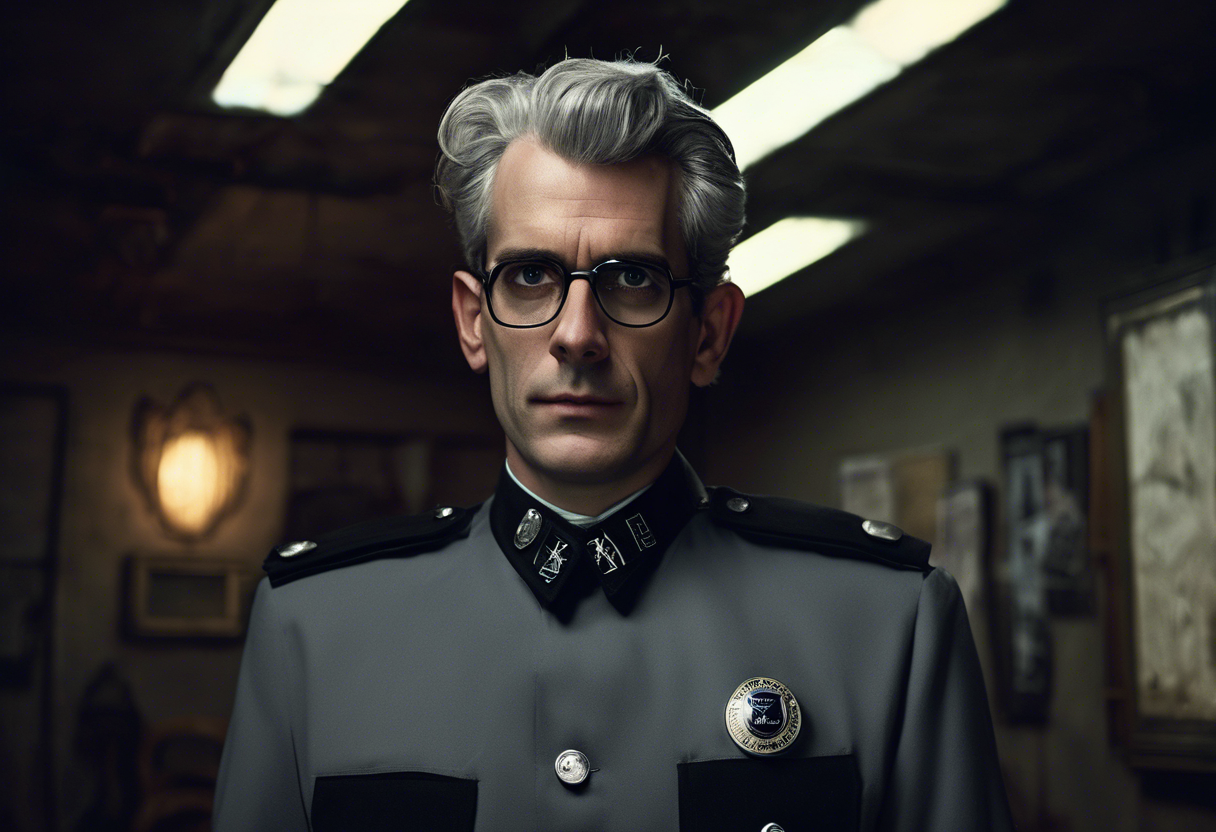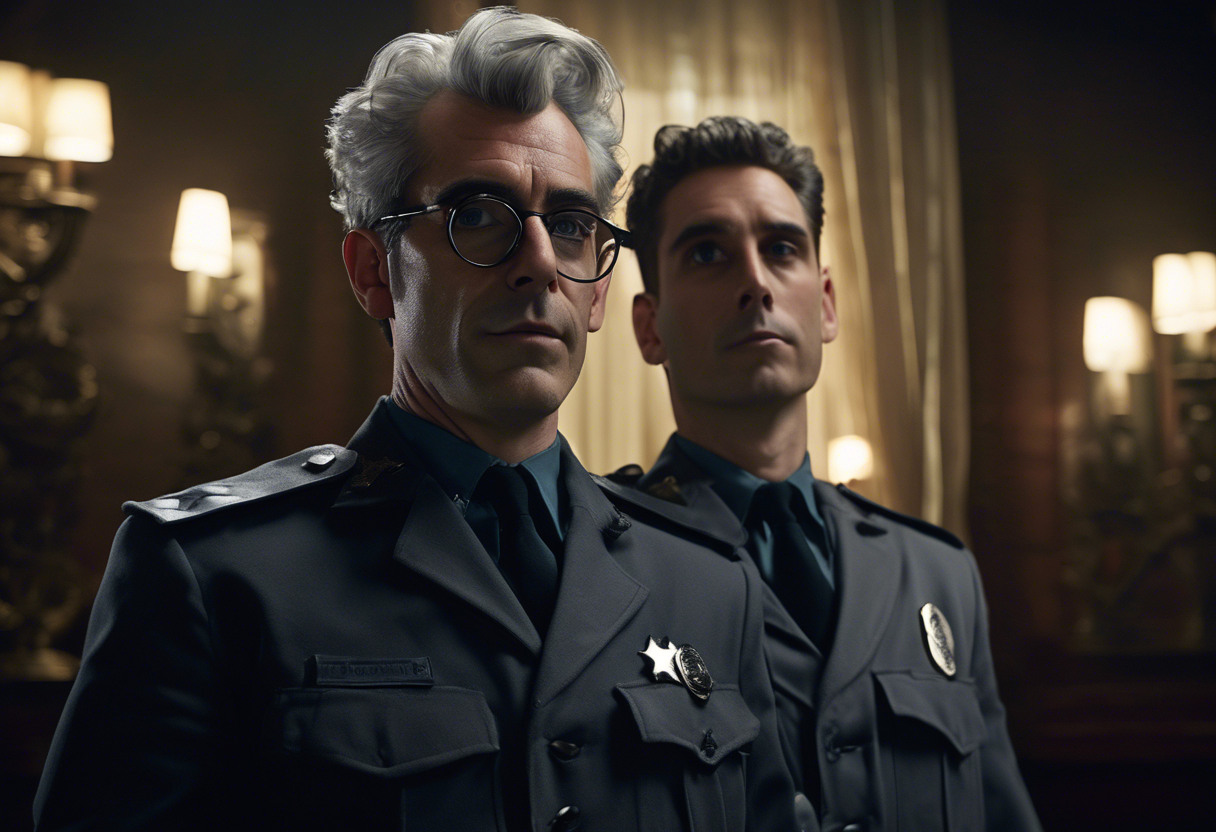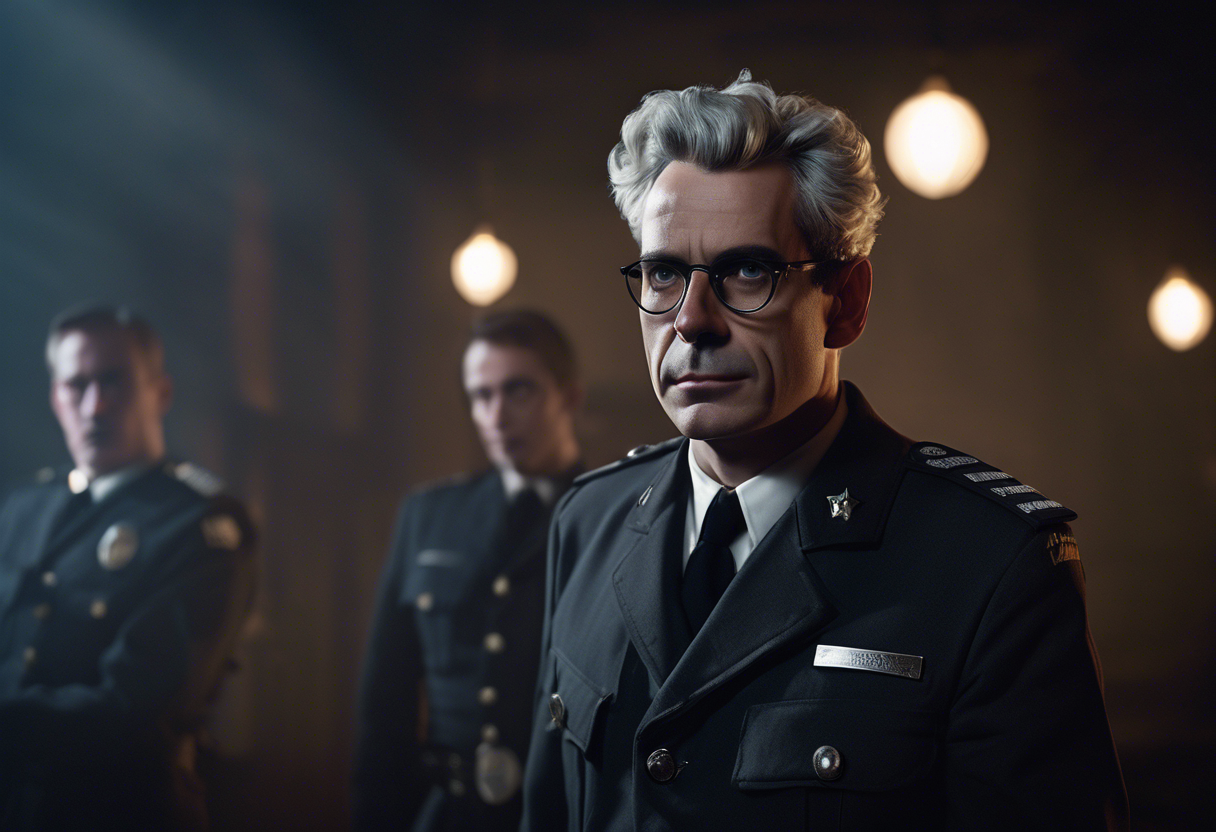Contents
Egon Tiedemann: A Central Figure in the Mysteries of Winden
Introduction
Egon Tiedemann, portrayed by Christian Pätzold, is a pivotal character in the Netflix series Dark, a complex and intricate narrative that delves into the mysteries and tragedies of the fictional German town of Winden. As the father of Claudia and Silja Tiedemann, the husband (and later ex-husband) of Doris Tiedemann, and the Chief Inspector of the Winden Police, Egon’s character is deeply intertwined with the town’s history and the cyclical nature of its tragedies.
Egon’s significance in the series stems from his role as a figure of authority and his involvement in the central mysteries that unfold over multiple timelines. His character connects to broader literary traditions of small-town secrets and the consequences of unresolved pasts, reminiscent of works by authors like Stephen King and Twin Peaks creator David Lynch.
Role in the Series
Egon Tiedemann’s storyline is multifaceted, spanning several decades and intersecting with numerous characters. In the 1950s, Egon is a young police officer working under Chief Inspector Daniel Kahnwald, where he encounters the first of many bizarre and unexplained events in Winden, including the discovery of the bodies of Erik and Yasin [5].
As the series progresses, Egon becomes a central figure in the investigations of various disappearances and murders, particularly in the 1980s. His role as Chief Inspector places him at the forefront of these investigations, often leading him to confront the dark secrets of Winden’s past and the interconnectedness of its residents. Egon’s professional life is marked by his dedication and sometimes obsessive pursuit of truth, which often puts him at odds with the town’s residents and even his own family.
Egon’s personal life is equally complex. His marriage to Doris Tiedemann is strained, and he struggles with the challenges of being a father to Claudia and Silja, both of whom are deeply embroiled in the series’ time-travel mysteries. His relationship with Claudia, in particular, is significant as she grows to become a key figure in unraveling the mysteries of Winden, often working in tandem with or against her father’s efforts [1][4].
Character Analysis
Egon Tiedemann’s personality is defined by his tenacity, integrity, and a deep sense of duty. He is driven by a need to uncover the truth, even when it leads him down dangerous and unsettling paths. This determination often makes him come across as stubborn or even obsessive, but it also underscores his commitment to justice and his role as a protector of Winden.
Despite his strong sense of duty, Egon is not without flaws. His obsession with solving the mysteries can lead to neglect of his family and personal relationships. His marriage to Doris deteriorates over time, and his relationship with Claudia is complicated by his inability to fully understand or support her involvement in the time-travel events.
Egon’s character development is marked by his gradual realization of the true nature of Winden’s mysteries. As he delves deeper into the town’s secrets, he begins to understand the cyclical and interconnected nature of the events, which challenges his initial perceptions and forces him to confront the limitations of his role as a police officer.
Themes and Symbolism
Egon Tiedemann embodies several key themes in Dark, including the struggle for truth, the consequences of unresolved pasts, and the cyclical nature of time. His character represents the futile yet necessary attempt to impose order on a chaotic world, highlighting the tension between the desire for control and the inevitability of fate.
The character also symbolizes the generational curse that haunts Winden. Through Egon’s experiences, the series illustrates how the past continues to influence the present, and how individual actions can have far-reaching consequences that span decades. His involvement in the investigations serves as a metaphor for the human quest to understand and make sense of the world, even in the face of inexplicable events [1][5].
Cultural Impact
Egon Tiedemann has had a significant cultural impact, particularly among fans of the series. His character, along with the rest of the cast, has contributed to the show’s cult following and critical acclaim. The complexity and depth of his character have made him a subject of discussion and analysis, with fans appreciating the nuanced portrayal of a man caught between his professional duties and personal struggles.
The character’s influence extends beyond the series itself, reflecting broader cultural themes about the nature of time, family, and the consequences of one’s actions. Egon’s story resonates with audiences who are drawn to complex, character-driven narratives that explore the human condition.
Critical Reception
Critics and audiences have praised Egon Tiedemann’s character for his depth and complexity. Christian Pätzold’s portrayal has been lauded for bringing a sense of authenticity and vulnerability to the role, making Egon a relatable and compelling character.
The character’s storyline has been praised for its integration into the larger narrative of Dark, with critics noting how Egon’s investigations and personal struggles add layers to the show’s intricate plot. However, some critics have also pointed out the challenges of following Egon’s character across multiple timelines, highlighting the complexity of the show’s storytelling as both a strength and a weakness [4][5].
Legacy
Egon Tiedemann’s enduring appeal lies in his representation of the human struggle to understand and navigate complex, often inexplicable, circumstances. His character serves as a reminder of the importance of perseverance and the consequences of one’s actions, themes that resonate deeply with audiences.
In contemporary discussions, Egon’s character continues to be a point of reference for analyzing the impact of time-travel narratives and the psychological effects of being embroiled in such events. His legacy extends to influencing other works in the genre, where characters with similar traits of determination and complexity are often seen.

